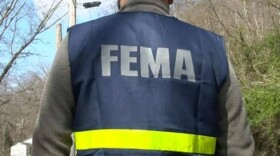STEVE INSKEEP, HOST:
Let's follow up on the earthquake off the coast of eastern Russia. Tsunami alerts were issued in Japan, Alaska, the West Coast of the continental United States and Hawaii, which is where we find NPR's Juliana Kim. Hi there, Juliana.
JULIANA KIM, BYLINE: Hi there.
INSKEEP: What's it like there?
KIM: So I'm in Honolulu on the island of Oahu. The first waves hit here just a few hours ago, and in the north shore, water levels reached about four feet in height. So far, no significant damage has been reported by local officials, and the tsunami alert has been downgraded. The winds were gusty here, but they've since died down, and the streets are generally less chaotic than a few hours ago when traffic was packed with people trying to move more inland. Beyond Hawaii, tsunami waves also reached Alaska, California and Washington state.
INSKEEP: OK. Useful to know and helpful to know that there's no serious damage yet, and also that people seem to know to evacuate. What was the earthquake itself like?
KIM: Yeah. So this earthquake measured 8.8 in magnitude, meaning it'll likely go down as one of the biggest ever recorded. The last time there was a quake of this scale was in 2011 in Japan, and thousands of people were killed. This morning's quake took place near Russia's far eastern peninsula. It left some building damage, and several people needed medical assistance, but there were no fatalities, according to the Russian news agency TASS.
INSKEEP: And then how have countries responded to the tsunami waves that were set off?
KIM: Japan, Alaska, Hawaii and along the entire U.S. western coastline were on high alert, urging people to evacuate coastal areas. In Hawaii, emergency alerts blared through the streets and on people's cellphones regularly. Hawaii's officials said part of the worry was that waves will wrap around the island, so all shores were at risk.
INSKEEP: There were so many questions after a Texas flood about the warning systems. So people got the warning in Hawaii. That's useful. Did your cellphone go off, by the way?
KIM: It did, yeah.
INSKEEP: OK. And you checked to make sure you were on high ground, I would assume. What happened in that 2011 earthquake and tsunami that you mentioned in Hawaii?
KIM: Yeah. So there, you know, Hawaii's governor, Josh Green, actually brought this up at a press conference last night. He talked about how that quake created a 7-foot wave in Maui. You know, there were no fatalities at the time, but it did cost over $7 million in damages. And while officials are still assessing this tsunami's damage, Green said he's already reached out to the White House and sent an emergency declaration.
INSKEEP: And just to clarify, you said the tsunami warning has been downgraded, so not exactly an all-clear, but people are feeling confident, it sounds like, where you are.
KIM: Yeah, seeing people - seeing a few cars drive by and a few folks walking their dogs.
INSKEEP: OK. NPR's Juliana Kim in Honolulu, Hawaii. Thanks so much.
KIM: Thank you.
(SOUNDBITE OF DANIEL LANOIS' "PANORAMA") Transcript provided by NPR, Copyright NPR.
NPR transcripts are created on a rush deadline by an NPR contractor. This text may not be in its final form and may be updated or revised in the future. Accuracy and availability may vary. The authoritative record of NPR’s programming is the audio record.









